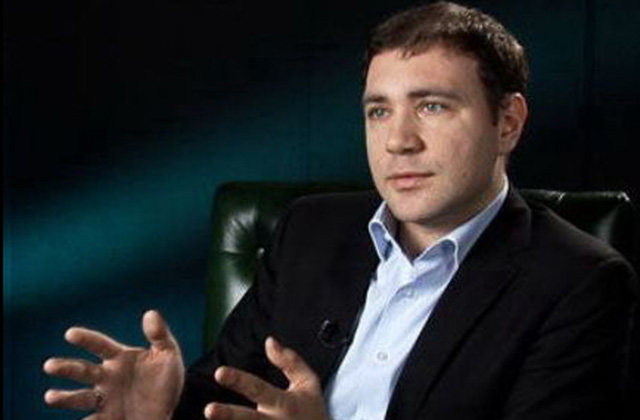“One shouldn’t Submissively Obey a Country, which Sells Armaments to its Enemy”

Interview with Denis Dvornikov, member of Russian Association of International Law, PhD in Legal Sciences.
What may be anticipated from Armenia-Azerbaijan presidential meeting to be launched late this month?
Firstly, one should anticipate sharpening of situation on the contact line. It’s a good tradition of Ilham Aliyev to shell villages of Armenia and Nagorno-Karabakh prior to any meeting or summit linked to Karabakh-Azerbaijan conflict, launching unmanned aerial vehicles, attempt to anger the negotiating parties and mediators. I don’t have any expectation of a breakthrough outcome.
Maximally it may be maintenance of relative stability. It’s preferable to hope that Russia and other participants of negotiation will finally be able to exert pressure over Baku, so that Aliyev’s regime: a) suspended provocations on the border, b) reduced immodest anti-Armenian propaganda. Without it negotiations are turning into a real ritual photo session for media outlets, saying “Look, Sargsyan and Aliyev stand next to each other,” click-click. That attraction is already annoying.
Russia’s FM issued a statement, that a trilateral—Russia, Armenia and Azerbaijan, summit is planned in Saint Petersburg on NK conflict settlement, however, later on it amended the statement by cleaning those lines. What does this mean?
This means they attempt to “bend” (or instigate) Artsakhi and Armenian people to return the so-called “security zone” so that NKR withdrew from participation in negotiations. The Armenian side still firmly maintains the positions and sends those two proposals where their place is—to the recycle bin.
I call on both Armenian states to resist till the end and undivertedly follow that approach. Withdrawal of NKR constitutional area means end of history not only for Artskah, but also for Armenia. In that case it’ll be necessary to build a new Armenia somewhere in Uruguay, as on Artsakhi and Azerbaijani border, together with elimination of strength, protective shield of Armenia will disappear as well. Even if Aliyev wouldn’t like to take new territories, Erdogan will instigate him.
In your opinion why did Armenia vote against the resolution of return of migrants of South Ossetia and Abkhazia at UN General Assembly session? By that doubt is being cast upon Armenia’s sovereignty of adopting decisions. To which extent is that voting conditioned by Moscow’s pressure and how is it linked to Artsakh?
Based on my geo-political taste Armenia’s “against” voting is a big historical mistake. Firstly, one shouldn’t submissively obey a country, which sells armaments to its enemy. Secondly, no matter how Armenians and Georgians will comment bilateral relations they’ll have to meet new Osman invasion hug together in a unified trench. Only enemies of Armenians and Georgians, as well as those of historical Russia can make Armenia and Georgia fight, as Christian equal cooperation of Russia, Georgia and Armenia with its subsidiarity, its ideology is much more necessary and logical, than all CSTOs and Eurasian projects altogether.
Not Asia should be dragged to Europe, but real Europe, Christian, all-human cultural values and European way of life in Eurasia should be protected. However, I’m afraid, that Russian politicians will realize it too late, when Ararat Valley and Borjomi will turn into China Towns, and ISIS will close last European cafes in Tbilisi and Yerevan with Ottoman people.
I deliberately introduce this with over-exaggeration and pain, to be clear: if Christians of Europe fight much and beslaver one another, they should recall two centuries ago who was hitting on the buttock with a roaster, nothing good will come out of it. This is a rather crucial circumstance: one shouldn’t compare Karabakh-Azerbaijan conflict with the conflicts in Georgia with its regions, even for the purpose that Georgia’s official representatives accepted their guilt. Or at least for the fact, that there is an open door on the border of Tskhinvali region with a rusty hedge, like in the summer house of a Soviet cleaner, and Ossetians leave for Tbilisi to study, get treatment, buy and sell products.
Can the Artsakhi people call an emergency from Azerbaijan? And inhabitants of villages neighboring South Ossetia can apply to Georgia’s authorities at any time possible. Migrants should return to their houses, both to Tskhinvali and Gali district of Abkhazia. This peace and reconciliation are necessary to all of us . It’s their issue how Georgia will make relations with those people, by which a special ministry is busy with. They, who see any similarities with Karabakh-Azerbaijan conflict and that of Georgia, act against Armenians, Georgians and against their interests, for whom peace in the region is valuable.
In near future RA NA will ratify united air defense agreement. In your opinion, what does it presuppose and why is supply of armaments from Russia to Armenia conditioned by the circumstance of joining united air defense system?
Supposedly, that air defense is first and foremost, a complicated technical system, for which integration of junctions, subdivisions and very close interstate cooperation is necessary. I’m not a specialist in that field, serious military analyst is necessary here. Result is important, and the outcome is peaceful sky over Armenia, Nagorno-Karabakh and all countries in the region. Peace is the chief value, main criterion for all efforts, plans and systems.
Baku hasn’t reflected to that agreement. Why?
Probably, they are calculating the implications. Maybe some negotiations are held from Baku. We may only guess. Military affairs are dark ones. I wouldn’t like to build a theory of conspiracies.
How do you comment Iran’s disposition, which is against the united air defense system?
Iran is a serious state with numerous interests and enemies. For this reason Tehran reflects very jealously, when they attempt to install something on Iranian border. In particular, when that “something” shoots, explodes and claims availability of military contingent, including Russian one. Russia in Iran is perceived as contradicting ally, which is hard to predict. That’s why Iranians, I think, are perverse to prevent it.
By Gayane Khachatryan

























